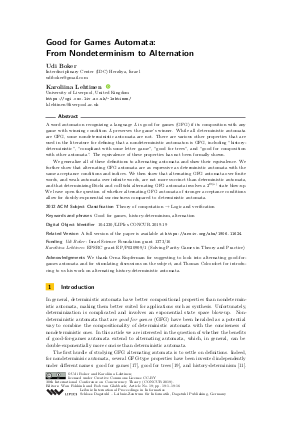LIPIcs.CONCUR.2019.19.pdf
- Filesize: 0.52 MB
- 16 pages

 Creative Commons Attribution 3.0 Unported license
Creative Commons Attribution 3.0 Unported license





















Feedback for Dagstuhl Publishing